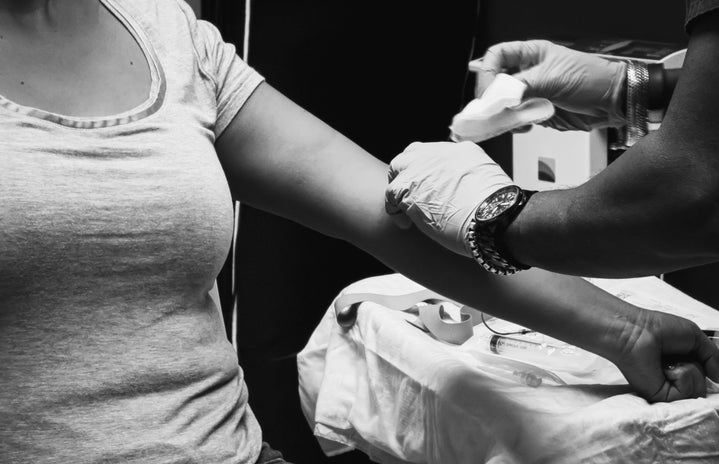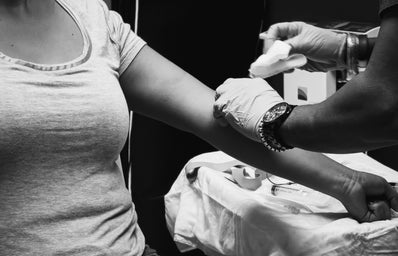Recent information has been revealed that the COVID-19 vaccine is closer than we think. For the past few months companies like Pfizer have been working hard on trying to find a vaccine and see what could work for any person. Pfizer partnered with a german company called BioNTech, and proved that the vaccine is 90% effective. Even though the vaccine has made a lot of progress, it’s not the solution for the next several months and we should still follow public health measures. Besides this, there’s a few more things we should know about the vaccine and what it means for the future.
Pfizer and BioNTech started their clinical trial in July, where half of the people got the vaccine and the other half got the placebo of salt water. So far only 94 out of 44,000 participants have gotten COVID-19, and after looking at how many of those infected had the actual vaccine and how many had the placebo, the analysis suggests that it’s 90% effective. But as with many clinical trials, the data was “blinded” meaning that only the independent board knows how many of the 94 infected people got the placebo or vaccine. Given this information we can safely assume that very few people who got vaccinated got COVID-19. All of this is all good results meaning it’s worth considering licensed vaccines that people regularly receive. To have a better understanding of how effective it is, the influenza vaccine is only 40% to 60% effective at its best.
If you are concerned about the safety of the vaccine, Pfixer and BioNTech have reported no serious safety concerns from the vaccine. They ran smaller clinical trials during May that were made to detect warning signs about the safety of the vaccine, and tried 4 different versions and selected the one with the fewest cases of moderate side effects (fever, fatigue). The chief executive of Pfizer said that they could have 30 to 40 million doses of the vaccine before the end of the year enough for 15 to 20 million people to get the vaccine and the booster 3 weeks later. The people who qualify for the initial doses has not been decided yet, but people who are at higher risk will most likely be a priority— this includes healthcare workers, older adults and people with high risk factors like obesity and diabetes. Pfizer and BioNTech state that they could make 1.3 billion doses a year but it’s still not enough to satisfy the world’s needs but if other vaccines are as effective companies will manufacture them and help with the demand.
The trial will continue until it reaches 164 cases of COVID-19, since at that point it will be complete. They can’t tell us how effective it is until the preliminary results offer some compelling evidence that the vaccine is actually effective. The only people allowed to make an estimate based on statistics are scientists. The effectiveness of the vaccine can only be firmly determined once millions of people get the vaccine but experts say that the preliminary data on the effectiveness should be very high. There are 10 other vaccines running right now across the globe. The fact that the Pfizer and BioNTech vaccine has gotten great results is making the other more optimistic.
Most people are still unsure if they should even consider getting the vaccine, but there’s research about how vaccines work. Years ago people experienced extreme side effects from others which caused many people to never get vaccines ever again but science keeps evolving everyday and new things are discovered each day. Companies like Pfizer and BioNTech are proving key data to the public in order to stop this virus and go back to having what we considered a normal life. Most people assume that since many people will be getting the vaccine then they don’t need it but in reality this is all for everyone’s safety. I encourage everyone to keep up with the Pfizer and BioNTech trial, follow public safety guidelines, and after reading this hopefully reconsider getting the vaccine.


